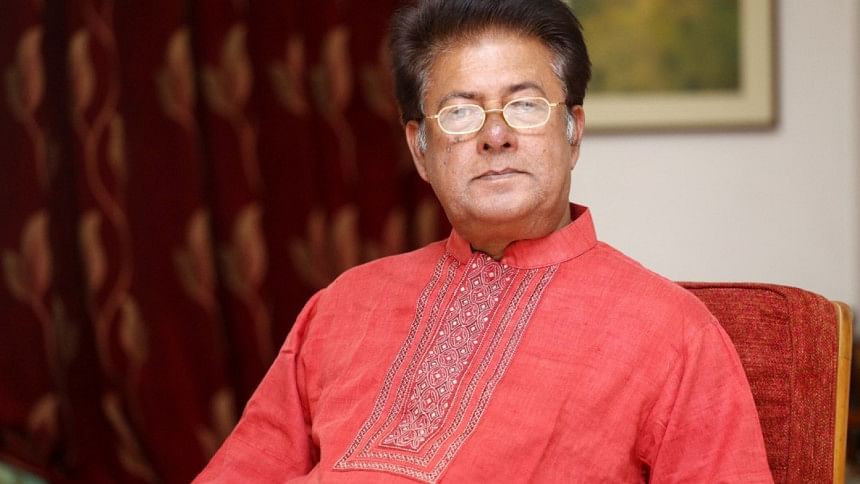“The days of struggle will never fade away from my mind” – Mamunur Rashid

Noted actor Mamunur Rashid has aced his performances with his brilliant screen presence both on the silver screen and theatre. The Ekushey Padak awardee has also earned praises for his impeccable direction and screenwriting over the years. Being the chairperson of the Bangladesh Group Theatre Federation, his plays have received positive criticism from audiences both at home and abroad. On the occasion of 50 years of our independence, Mamunur Rashid walked down his memory lane and recounted the horrific memories of March 1971.
"I still have that horrible memory of March 50 years ago. I was 23 years old then. Glimpses of those days flash in front of my eyes as soon as March arrives," he shares. "The month of March is worth remembering for multiple reasons, the prime one being the historic speech on March 7, where one of the greatest orators of all time, Bangabandhu Sheikh Mujibur Rahman, called upon our independence and millions joined his cause without a second thought."
During the night of March 25, 1971, the Pakistani army launched their attack on innocent people of the then East Pakistan, as the people were asleep. "Fifty years have passed since I witnessed that dreadful event but I have lived a free life for the last five decades. What more could I ask for! In exchange for the blood of millions of martyrs and the honour of thousands of mothers and sisters, we have got independence," he adds.
Mamunur Rashid recalled his account of the night of March 25, often referred to as 'Kaalo Ratri' in the history of this nation. "I was at Abdus Samad's residence located at the city's Green Road that day, working on the script for a film named 'Shurjo Grohon'. 'Joy Bangla used to be the nation's favourite slogan back in those days," he says. "We started hearing gunshots suddenly at around 10:30 pm. Farmgate was surrounded with barricades, but tanks started to roll in, crushing the barricades into dust. We were close and saw some tanks moving towards Dhanmondi while some made way towards Rajarbagh."
The actor had to spend the night at Abdus Samad's residence, where they locked themselves in and no one dared stepped outside. The sound of gunshots and rifles became louder, as the night deepened.
"Chaos and cry took over the nation as the bodies laid in masses at the roads of Dhaka University, Rajarbagh Police Line, and Peelkhana. "It was dawn, time for Fajr prayers, and yet, neither did they cease-fire nor did they spare the masses."
Mamunur Rashid spent the next day indoors, hearing the scream of people, as the Pakistani army burned down slums and rained rifle shots on the citizens. While the fear in his heart made him tremble in fever, Bangabandhu Sheikh Mujibur Rahman's words in the March 7 speech inspired him to take up whatever he could find and fight for our existence. The next day, the curfew was released.
"I used to live with my sister at Gulistan Railway Quarters back then, and finally decided to return to her. I took the road to Nilkhet and New Market, coming across hundreds of dead bodies, lying like butchered cattle on the streets," he says. "Hundreds fled Dhaka that day and afterwards, and I decided to move to Keraniganj. Soon, the army made way to Jinjira, and I had to move to the village of Shinepukur by boat. After roaming and hiding for days, I finally managed to reach my home in Tangail."
While staying in Tangail, Mamunur Rashid started to help Abdul Kader Siddique by equipping people with weapons for the war. Later, he decided to move to Kolkata, and started working for the Swadhin Bangla Betar Kendra. "These memories still wet my eyes. Today, we are celebrating our independence, but the days of struggle will never fade away from my mind," he concludes.
Translated by Ashley Shoptorshi Samaddar

 For all latest news, follow The Daily Star's Google News channel.
For all latest news, follow The Daily Star's Google News channel. 



Comments